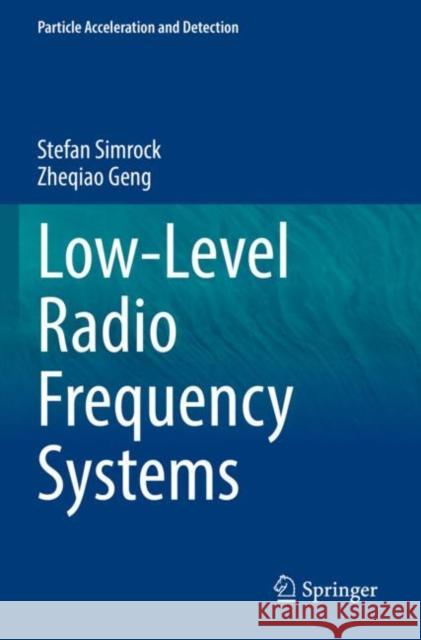Low-Level Radio Frequency Systems » książka
Low-Level Radio Frequency Systems
ISBN-13: 9783030944216 / Angielski / Miękka / 2023 / 382 str.
Low-Level Radio Frequency Systems
ISBN-13: 9783030944216 / Angielski / Miękka / 2023 / 382 str.
(netto: 575,06 VAT: 5%)
Najniższa cena z 30 dni: 578,30
ok. 22 dni roboczych.
Darmowa dostawa!
This book begins with an overview of the RF control concepts and strategies. It then introduces RF system models for optimizing the system parameters to satisfy beam requirements and for controller design. In addition to systematically discussing the RF field control algorithms, it presents typical architecture and algorithms for RF signal detection and actuation. Further, the book addresses the analysis of the noise and nonlinearity in LLRF systems to provide a better understanding of the performance of the RF control system and to specify the performance requirements for different parts of the RF system.Today, accelerators require increased RF stability and more complex operation scenarios, such as providing beam for different beam lines with various parameters, and as a result LLRF systems are becoming more critical and complex. This means that LLRF system developers need have extensive knowledge of the entire accelerator complex and a wide range of other areas, including RF and digital signal processing, noise analysis, accelerator physics and systems engineering.Providing a comprehensive introduction to the basic theories, algorithms and technologies, this book enables LLRF system developers to systematically gain the knowledge required to specify, design and implement LLRF systems and integrate them with beam acceleration. It is intended for graduate students, professional engineers and researchers in accelerator physics.
This book begins with an overview of the RF control concepts and strategies. It then introduces RF system models for optimizing the system parameters to satisfy beam requirements and for controller design. In addition to systematically discussing the RF field control algorithms, it presents typical architecture and algorithms for RF signal detection and actuation. Further, the book addresses the analysis of the noise and nonlinearity in LLRF systems to provide a better understanding of the performance of the RF control system and to specify the performance requirements for different parts of the RF system. Today, accelerators require increased RF stability and more complex operation scenarios, such as providing beam for different beam lines with various parameters, and as a result LLRF systems are becoming more critical and complex. This means that LLRF system developers need have extensive knowledge of the entire accelerator complex and a wide range of other areas, including RF and digital signal processing, noise analysis, accelerator physics and systems engineering.Providing a comprehensive introduction to the basic theories, algorithms and technologies, this book enables LLRF system developers to systematically gain the knowledge required to specify, design and implement LLRF systems and integrate them with beam acceleration. It is intended for graduate students, professional engineers and researchers in accelerator physics.











